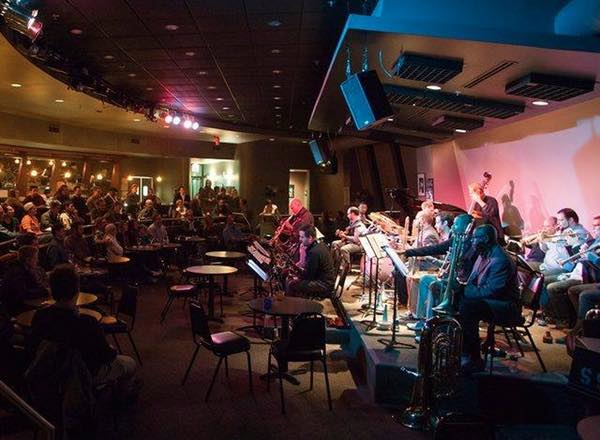
Small clubs are the heart and soul of local music scenes, places where music lovers can hear a mix of local acts, up-and-coming touring acts and legendary stars in genres that don’t typically fill arenas or even theaters, where fans and musicians hang out and become a real community.
And while no one is worrying too much about the fate of huge concert promoters Live Nation and AEG (although ticket buyers are worrying about getting refunds for cancelled shows!), which have the resources to survive a touring industry shutdown that some have projected could be up to 18 months, the loss of those small venues would destroy the fabric of most local music scenes.
So they’re doing something about it. Just a few weeks ago, spurred by the Independent Venue Week U.S. organization, which launched in 2018, they’ve banded together to form the National Independent Venue Association. Within three days of launching, NIVA signed up 450 venues in 43 states with more coming on board all the time.
The organization’s goal is to share information and lobby for its interests, with committees and weekly Zoom meetings to work on various aspects of doing business post-pandemic. It’s free to venues to join and the group has received funding from See Tickets and Lyte for their membership launch and to hire a lobbying firm to speak up for them in D.C.
Here in Cleveland, participating venues include the Beachland Ballroom (whose co-owner Cindy Barber is NIVA’s spokesperson in northeast Ohio), the BOP STOP, CODA, the Grog Shop, the Happy Dog, Mahall’s, the Music Box, Nighttown, the Winchester and the Happy Dog. The Kent Stage, Jilly’s Music Room and the Goodyear Theater in Akron, the Auricle Venue and Bar in Canton, Westside Bowl in Youngstown,and Robins Theatre in Warren have also signed on.
“In two weeks there were enough people to step up and start an association,” says Barber. “A lot of it is in keeping what Sean [Watterson of the Happy Dog] and I have been talking about for five years. Hopefully it could at least lead to organizational structure that looks at the economics of the genre. Those independent venues outside of AEG and Live Nation are out there on their own, struggling. It’s a familiar story in all these cities. There’s not a lot of profit margin, but people are doing it for love of music.”
She says that club promoters are exchanging ideas about what reopening might look like.
“A lot of the conversation on these calls is about how are you re-cutting your deals? We’re moving all these shows from March to October, so in October there’s going to be twice as many shows as usual in the fall. People are still not going to go out, and the governor may cut our capacity. If you were expecting a sellout and guaranteed someone $10,000, that doesn’t makes sense anymore. People are looking at door deals, or deals contingent on what our capacity will be at the time of the show.”
Gabe Pollack of the BOP STOP echoes her concerns. “I think all of us are waiting to hear when music venues can reopen and what restrictions will be in place when we can reopen,” he says. “For instance, are tables going to be required to be 6 feet apart? Will performers need to be six feet apart (that means no big bands on the BOP STOP stage). Will our capacity be slashed? Capacity has a direct relationship to how much revenue we can generate in an evening. It also affects our offers to bands. Without knowing our capacity it is hard to offer guarantees to bands because we don’t know how many tickets we are allowed to sell.”
The challenges clubs are facing due to the shutdown has spurred Cleveland venues to hold weekly calls among themselves to look at the larger landscape and maximizing everyone’s chances of survival post-pandemic. At least three of the clubs — the Beachland, the Happy Dog and the BOP STOP — have qualified for the first round of PPP business loans under the CARES Act.
“One thing we [the Cleveland venue owners] talked about as a group is it’s good being in Cleveland because we’ve got a loyal following. It’s not like some other cities where things come and go,” says Watterson. “It’s our ace in the hole. We’re all used to running on fumes. It’s good. Poor people know how to be poor more than rich people know how to be poor. We know how to be scrappy.”
Pollack adds that he hopes some permanent change and support for small local venues emerges from these conversations.
“I am spending a lot of time advocating and lobbying for economic relief for the live music scene. I’m optimistic that there will be some policies created that will support live music even when the pandemic is over. I know musicians and venues alike want to see live music return but we just want everyone to be safe. The Music Settlement, the nonprofit that owns the BOP STOP, has survived the flu pandemic of 1918, World War I, World War II, and the Great Depression. BOP STOP will survive this, too.”
3 Responses to “Small Music Venues Come Together to Fight for Their Survival”
Lisa Jones
I hope Night Town joins this association. This town won’t be the same without it.
Andrew deLuna
I am small venue that started doing shows last year. I would like information on this organization and how to join.
Thanks
Andy de Luna
Anastasia Pantsios
You’ll find them here: https://www.nivassoc.org